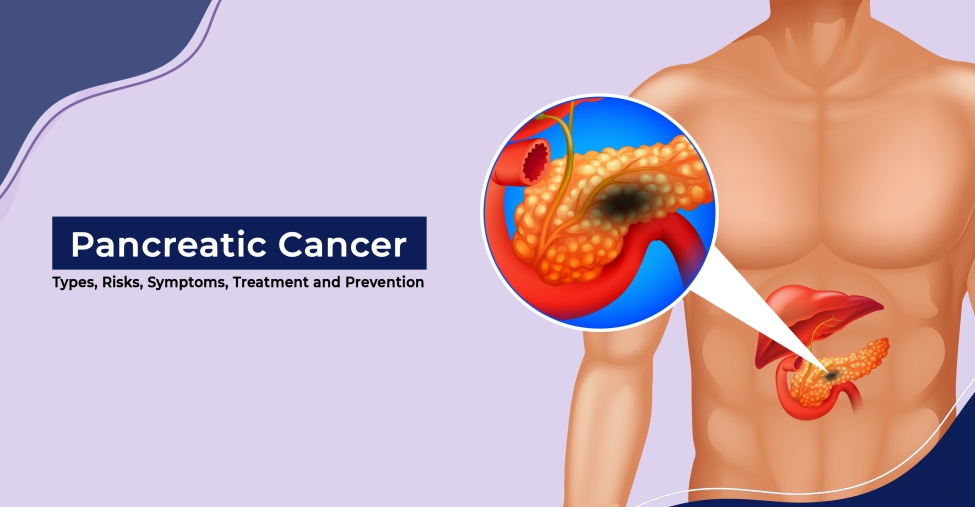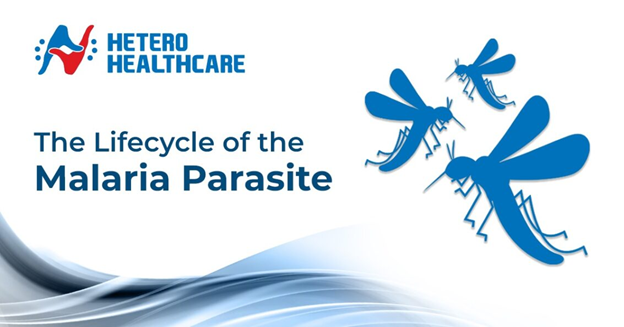Hetero Healthcare
25 Nov 2021

The Cancer starts in The Pancreas.
The pancreas is an organ found behind the stomach, it’s shape is similar to a fish. It has a broad head, tapering body, narrow-pointed tail. Pancreatic cancer is what it sounds like! The cancer of the pancreas is called Pancreatic Cancer.
Pancreatic Cancer is an interactable malignancy and the seventh leading cause of mortality rate worldwide. In India, the prevalence is comparatively low. It is 0.5-2.4/100,000 persons per year in women - 0.2-1.8/100,000 persons per year in men.
Pancreatic Cancer is radically caused by either mutations or damage to the DNA. These DNA mutations occurs in one of the three ways:
Pancreatic Cancer begins in the tissues of the pancreas, which is a vital organ that executes pancreatic juices called enzymes that converts the food we eat into fuels for the body's cells that has two main functions:
Exocrine cells:Exocrine cells form the glands and ducts, and these exocrine glands release pancreatic enzymes and release them into the intestines that aid us in digesting the food we intake. Exocrine cells occupy most of the pancreas.
Endocrine cells:The endocrine cells are a form of many small cells in the pancreas that synthesize and secrete hormones like insulin and glucagon and release them into the blood directly. If you are diagnosed with Pancreatic Cancer, knowing whether it's an exocrine or an endocrine cancer is crucial as their symptoms, treatment, and outlook will differ significantly.
Here are a few types of Pancreatic Cancer:
Pancreatic Adenocarcinoma:
Typically, Pancreatic Cancer is mostly formed in exocrine glands, which line up the ducts that carry digestive enzymes out of the pancreas and is called Pancreatic Ductal Adenocarcinoma. Pancreatic Ductal Adenocarcinomas develop when the exocrine glands begin to grow abnormally. 95% of cancers of the exocrine pancreas are adenocarcinomas, which develop in the ducts of the pancreas. These cancers rarely develop in the cells that excrete pancreatic enzymes and are called Acinar cell carcinomas.
Rare types of exocrine cancers:
The rarest types of exocrine cancers are
adenosquamous carcinomas:
It represents 1% to 4% of exocrine Pancreatic Cancers. It is a more progressive tumor with a poorer prognosis.
Squamous cell carcinomas:
It is a rare non-endocrine Pancreatic Cancer formed in the duct and made with squamous cells. There are no reported cases of the disease as its origin is not fully understood. However, it has a poor prognosis as the disease is diagnosed after metastasis.
Colloid Carcinoma:
It is another rare type of cancer and accounts for 1% to 3% of exocrine Pancreatic Cancer. These tumors develop from a kind of benign cyst called intraductal papillary mucinous neoplasm (IPMN). These tumors spread in a gelatinous substance called mucin, due to which it does not spread, and the treatment is easier.
Neuroendocrine Pancreatic Cancer:
The neuroendocrine pancreas is rare and has less than 5% of all Pancreatic Cancer cases. An unavoidable risk factor for this disease is a genetic disorder known as multiple endocrine neoplasia type 1 syndrome.
1. Gastrinoma:
Gastrin is a hormone that aids digestion. The formation of tumors in gastrin-producing cells is called Gastrinoma.
2. Insulinoma:
Insulin controls the amount of glucose or sugar levels in the bloodstream. The formation of tumors in these groups of cells in Insulinoma.
3. Glucagonoma:
Glucagon harmonizes the amount of glucose in the bloodstream. The formation of a tumor in the group of glucagon-producing cells is called Glucagonoma.
4. Others:
Other types of islet cell tumors make hormones that harmonize the balance of water, sugar, and salts in the body. VIPomas, which affect vasoactive intestinal peptides, and somatostatinoma affect somatostatin, form part of this group. The treatment for these types of islet cell tumors is similar, so they are often grouped.
Here are a few risk factors that develop Pancreatic Cancer in an individual: Age, gender, race/ethnicity, Smoking, Obesity, diet, alcohol, diabetes, family history, rare inherited conditions, Chronic pancreatitis (inflammation in pancreas), bacteria (Helicobacter pylori), exposure to chemicals.
Every disease sends signals of occurrence to the body before showing up. It is the stage where we should alert ourselves and get treatment before the complications worsen. Here are a few symptoms of the disease which alerts us about Pancreatic Cancer:
1. Stomach and Back pain:
Dull pain in the upper abdomen and/ middle /upper back that often comes and goes. It is a common symptom caused when the tumor is formed in the body or tail of the pancreas as it can compress the spine
2. Jaundice:
Jaundice is a painless symptom of Pancreatic Cancer. It occurs when the tumor forms in the head of the pancreas. It blocks the bile duct causing symptoms:
Yellowing of skin and eyes.
Dark urine.
Pale, greasy stools that float
Pruritus (Irritation in the skin)
3. Weight loss:
A person should not neglect sudden weight loss. Consult your doctor to rule out the reason, as Pancreatic Cancer can also be one of the reasons.
4. Gastrointestinal (GI) Problems:
The tumor pressing on the stomach or other parts of the digestive system results in GI-related Pancreatic Cancer.
Symptoms of GI
5. Diabetes:
Diabetes might be one of the trigger points of Pancreatic Cancer or vice versa. Cancer destroys the cells that make insulin which raises blood sugar levels. Sudden weight gain or weight loss might be a threat, as it might be diabetes resulting in Pancreatic Cancer. Consult your doctor for a check-up and act accordingly.
Imaging tests play a vital role in determining Pancreatic Cancer. However, your doctor might need a biopsy of the tumor or affected tissue's sample to define the cancer type. A pathologist will examine the tissue under the microscope. He will study the size, shape, and arrangement of the cancer cells, which will probably help to rule out the type of Pancreatic Cancer.
Other tests:
CT scan, MRI, Positron Emission Tomography (PET) Scan, ERCP, EUS, Laparoscopy, etc., aids in identifying the type of Pancreatic Cancer.
Pancreatic Cancer treatment is reliable on certain things like: Stage, tumor location, age, and health of the patient, criticality of the spread of cancer.
Below are a few possible treatment options:
Surgical removal:
The cancerous part of the pancreas is amputated along with it Lymph nodes may also be removed, and this process is called pancreatectomy. If the tumor is diagnosed in the broad part of the pancreas (the head), your surgeon may prefer the Whipple procedure. In this procedure, the head part of the pancreas, the duodenum (first portion of the small intestine), gallbladder, and some portion of the bile duct and nearby lymph nodes are amputated.
Chemotherapy:
Drugs are used through chemotherapy to kill cancer cells
Radiation energy:
Lightning speed energy is used to kill the cancer cells.
Immunotherapy:
Immunotherapy gives your body the ability to fight cancer. It has not been so effective, but it is beneficial to 1% of people with Pancreatic Cancer and a specific genetic change.
Targeted therapy:
It directs the genes or proteins that help cancer's growth. Genetic tests help to determine if targeted therapy is right for you.
Other insights about treatment:
Chemotherapy and/or radiation might be used instead of surgery. It can be used before surgery to make the tumor smaller or after surgery to ensure that all the cancer cells are killed. Discuss with your health care team and make the right treatment decisions.
Every treatment has Side effects. Before you undergo treatment, discuss the side effects of the treatment and seek medical advice to manage the side effects. Here are a few side effects of treatment of Pancreatic Cancer:
Side Effects
A few tips to reduce the effects of the side effects:
Pain management:
Pain medication may not be potent, so an endoscopic procedure called a celiac plexus block or neurolysis can be performed with the help of an ultrasound.
Jaundice treatment:
To relieve your jaundice symptoms, a healthcare provider can insert an intra-bile duct stent (tube).
Intestinal Blockage:
Your doctor inserts a stent to open up the blockage in your small intestine.
Emotional support:
Emotional support from family, friends, and doctors is the best treatment anybody can give to the patient suffering from pancreatic treatment.
We do not know the actual cause of Pancreatic Cancer, so it is difficult to determine how to prevent it! However, a healthy lifestyle can help you reduce the risk of getting Pancreatic Cancer:
Follow these hacks to reduce the risk of Pancreatic Cancer:
In case any symptoms like pain or jaundice are frequently worrying you, fix an appointment with your doctor and discuss all your health concerns with them. Develop an open and cooperative relationship with them so that you can be comfortable talking to them about everything you experience. In case you are diagnosed with Pancreatic Cancer, discuss all the pros, cons, treatment options, emergencies, financial terms, and all the necessary queries that gives you emotional support.
References
Hetero Healthcare

Hetero Healthcare27 May 2024
The Thyroid: Understanding Your Body's Master Gland
The thyroid gland, a small butterfly-shaped gland located at the base of your neck, plays a critical role in regulating your metabolism.

Hetero Healthcare25 May 2024
Taking Control of Your Breath: Understanding and Managing Asthma
Asthma can feel like a constant battle for air, leaving you breathless and wheezing. But with knowledge and the right approach, you can take control of your asthma and live a full, active life.

Hetero Healthcare30 Apr 2024
A Comprehensive Guide to Malaria
Malaria, a mosquito-borne infectious disease, continues to pose a significant threat to global health. At Hetero Healthcare, we are committed to raising awareness about this preventable illness and empowering individuals with knowledge to protect themselves. This comprehensive blog delves into the causes, symptoms, and effective prevention strategies for malaria.

Hetero Healthcare30 Apr 2024
A Guide to Parkinsons Disease for Patients and Caregivers
At Hetero Healthcare, we understand the profound impact Parkinson's disease (PD) can have on individuals and their loved ones.